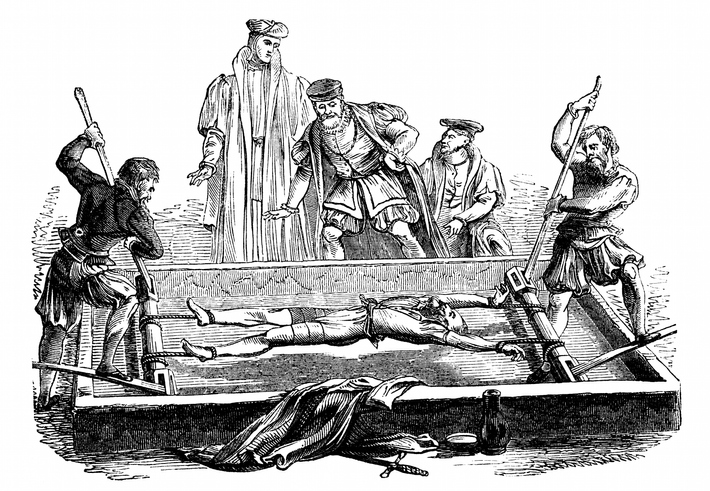New Frontiers of Fairness: Auto Da Fé by the Grand Inquisitor of Economics
July 26, 10 A.F. (after fairness) Dear Fellow Inquisitors, It has been more than a decade now since the Federal Neutrality Commission, born of the ashes of the old world, ushered in the Age of Fairness. As you all know, the FNC was created during the Online Era, when the emergence of the largest companies ... New Frontiers of Fairness: Auto Da Fé by the Grand Inquisitor of Economics
The Catch-22 of AICOA’s Guidelines
If S.2992—the American Innovation and Choice Online Act or AICOA—were to become law, it would be, at the very least, an incomplete law. By design—and not for good reason, but for political expediency—AICOA is riddled with intentional uncertainty. In theory, the law’s glaring definitional deficiencies are meant to be rectified by “expert” agencies (i.e., the ... The Catch-22 of AICOA’s Guidelines
The Bitter Fruits of Federal Antitrust ‘Reform’ Legislation
Much ink has been spilled regarding the potential harm to the economy and to the rule of law that could stem from enactment of the primary federal antitrust legislative proposal, the American Innovation and Choice Online Act (AICOA) (see here). AICOA proponents, of course, would beg to differ, emphasizing the purported procompetitive benefits of limiting ... The Bitter Fruits of Federal Antitrust ‘Reform’ Legislation
Winter in Helsinki
Jouko Hiltunen gazed out the window into the midday twilight. Eight stories down, across the plaza and promenade, the Helsinki harbor was already blanketed under a dusting of snow. By Christmas, the ice would be thick enough for walking out to the castle at Suomenlinna. Jouko turned back to his computer screen. His fingers found ... Winter in Helsinki
AICOA Is Neither Urgently Needed Nor Good: A Response to Professors Scott Morton, Salop, and Dinielli
Earlier this month, Professors Fiona Scott Morton, Steve Salop, and David Dinielli penned a letter expressing their “strong support” for the proposed American Innovation and Choice Online Act (AICOA). In the letter, the professors address criticisms of AICOA and urge its approval, despite possible imperfections. “Perhaps this bill could be made better if we lived in ... AICOA Is Neither Urgently Needed Nor Good: A Response to Professors Scott Morton, Salop, and Dinielli
Dead End Road: National Petroleum Refiners Association and FTC ‘Unfair Methods of Competition’ Rulemaking
Introduction The Federal Trade Commission (FTC) has long steered the direction of competition law by engaging in case-by-case enforcement of the FTC Act’s prohibition on unfair methods of competition (UMC). Recently, some have argued that the FTC’s exclusive reliance on case-by-case adjudication is too long and arduous a route and have urged the commission to ... Dead End Road: National Petroleum Refiners Association and FTC ‘Unfair Methods of Competition’ Rulemaking
Pushing the Limits? A Primer on FTC Competition Rulemaking
Since its founding in 1914, the Federal Trade Commission (FTC) has held a unique and multifaceted role in the U.S. administrative state and the economy. It possesses powerful investigative and information-gathering powers, including through compulsory processes; a multi-layered administrative-adjudication process to prosecute “unfair methods of competition (UMC)” (and later, “unfair and deceptive acts and practices ... Pushing the Limits? A Primer on FTC Competition Rulemaking
Why FTC Competition Rulemaking Likely Will Fail
I. Introduction In over a century of existence, the U.S. Federal Trade Commission (FTC) has been a policy leader in developing American thinking about and in enforcing antitrust and consumer protection laws pursuant to several specific statutory mandates. It has also promulgated a substantial number of consumer protection rules, dealing with a wide variety of practices. ... Why FTC Competition Rulemaking Likely Will Fail
Wrapping up Round One of the FTC UMC Symposium
Over the past three weeks, we have shared contributions from more than a dozen antitrust commentators—including academics, practitioners, students, and a commissioner of the Federal Trade Commission—discussing the potential for the FTC to develop substantive rules using its unfair methods of competition (UMC) authority. This post offers a recap of where we have been so ... Wrapping up Round One of the FTC UMC Symposium
How the FTC Could, but Won’t, Use Its Rulemaking Authority to Allow Aftermarket Parts
We used to have a robust aftermarket for non-original equipment manufacturer (OEM) automobile repair parts and “independent” repair services, but car companies have increasingly resorted to design-patent protection to prevent competition in the supply of cosmetic repair parts such as bumpers, hoods, panels, and mirrors. The predictable and intended consequence has been to raise prices ... How the FTC Could, but Won’t, Use Its Rulemaking Authority to Allow Aftermarket Parts
Regulating Competition at the FTC
Introduction In November 2021, the Federal Trade Commission (FTC) published a draft strategic plan for fiscal years 2022-2026 that previewed its vision for enforcement without the rule of reason guiding the analysis and without consumer welfare defining the objective. The draft plan dropped a longstanding commitment from the FTC’s previous strategic plans to foster “vigorous ... Regulating Competition at the FTC
Rules Without Reason
In his July Executive Order, President Joe Biden called on the Federal Trade Commission (FTC) to consider making a series of rules under its purported authority to regulate “unfair methods of competition.”[1] Chair Lina Khan has previously voiced her support for doing so.[2] My view is that the Commission has no such rulemaking powers, and ... Rules Without Reason











